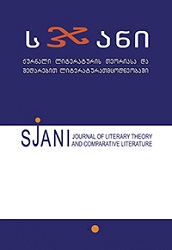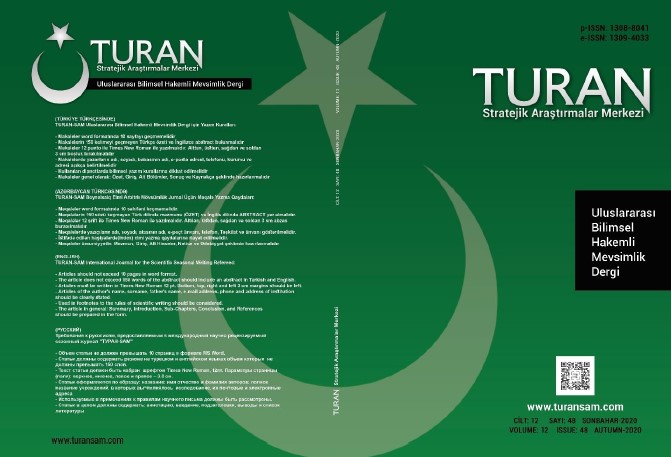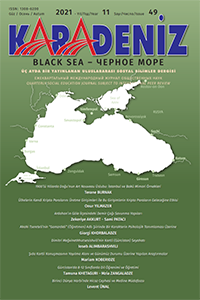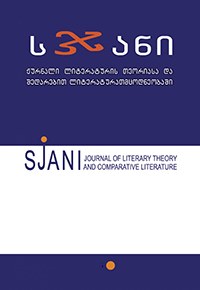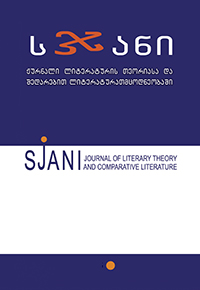Author(s): Teimuraz Doiashnili / Language(s): Georgian
Issue: 22/2021
In the symbolic lyrical masterpiece of the greatest Georgian poet of the 20th century – Galaktion Tabidze “Azure-land or Rose in Sand” the penetrating theme of the poem (way of my life) is characterized by a series of metaphorical comparisons, including the image-enigma rose in rain-soaked sand. Ave Maria, Virgin immaculate! As, after rain, a rose in sand, Life’s path is a mirage I battle at, The faraway sky’s far azure-land. The first stanza at the end of the text is invariably repeated – a frame of circular composition is created, in the space of which the drama of the spiritual life of the lyrical character is played, real or imagined scenes of the drama. Thus, the repetitive, refraining stanza is first an exposition: the lyrical character’s self-presentation before the Blessed Virgin, and in the finale – a messenger of a return to the original situation after conflicting vicissitudes. From the time of writing (1916) to the present day, the enigmatic image of the rose in sand has been understood by scholars in two ways: 1. in the context of reality – like a flower fallen on a dusty road, which is expected to be trampled down by a crowd and 2. an illogical-oxymonoric trope created by means of artistic conditionality – growing of a rose in sand, a kind of indication to the inner, spiritual disharmony of the character. What both interpretations have in common is that the image-symbols (rose in sand, dream, azure land), which are used to explain the object of comparison (way of my life), are considered to be contradictory images and in the context of fundamental romantic paradigm it is understood as the manifestation of the idea of the contrast of existence. The carried out structural-semantic analysis of the text, according to which the image-enigma rose in rain-soaked sand, as one of the elements of the series of artistic comparisons, is not in contrast relation with other elements (dream, azure-land), but is similar to them, is their synonymous image. Therefore, the secret content of the enigmatic image should be found not within the framework of the classical romantic antithesis, but in a conceptual space where the synonymy of the symbols have convincing explanation. The poem, which includes the analytical image-enigma, is traditionally considered in relation to the evangelical myth, insofar as it has a confession form and is dedicated to the Virgin Mary - Sunny Mary. It has remained unnoticed by scholars to date that the realies of the text, the lyrical narrative of the character, are at odds with the views and dogmas of the Christian confession that the objects and concepts related to Christianity are the primary material that undergoes the process of transformation, symbolization in the poetic system of symbolism and in this way it acquires its surrealistic, new, true content. Research has shown that the poem conveys the cosmic drama of the young poet’s otherworldly romantic love and disillusionment, who seeks immortality and has chosen way of salvation and is closely related to the mythopoetic narrative about Sophia / world soul /eternal feminine. This narrative is an integral part of the All-Oneness philosophy of the Russian thinker, mystic and poet Vladimir Solovyov (1853-1900), that specifically conveys the idea of overcoming dualism, the synthesis of matter and ideal, achieved via god-man-like self-sacrifice and mysterious contact with eternal feminine. This is the mythopoetic intertext that in Galaktion Tabidze’s poem is a source of symbolization of reality and gives the key to decoding the text. Just within the concept of synthesis an enigmatic image rose in rain-soaked sand finds convincing explanation which is a symbol of the transformation of matter (sand) into a spiritual body, immaculate beauty (rose.). As an artistic image, it visually depicts the essence of sophistic doctrine – the idea of synthesis, the notion of the development of the universe. It should also be noted that Rose in Sand has analogies in Vladimir Solovyev’s poetry and philosophy as well. Galaktion Tabidze’s poem - `Azure-land or Rose in Sand~ shows a very dramatic part of Solovyov’s mythopoetic narative - the exciting anticipation and doubt of the proclamation of the Virgin, frustration with the failure to fulfill the promise, which leads to a worldview crisis. Rose in Sand is also related to the European, Novalis’ tradition of the blue flower and is in line with the poet’s vision and belief in the possibility of the transformation and immortality of matter. Rose in Sand as an artistic whole, reflects the critical state of consciousness of the lyrical character / author, the initial stage of sobering up from the mystical drunk. The poet’s spiritual drama, as clairvoyance , has so far been performed only in the imagination, and in the present he cannot renounce the dream on synthesis – dream on immortality and the immaculate world.
More...
